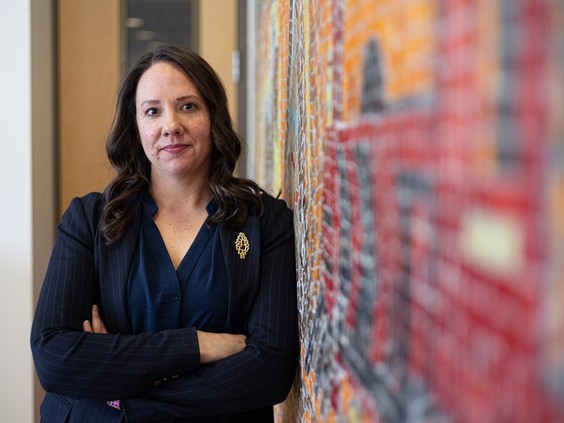
Larissa Kurz
Regina Leader-Post
Saskatchewan Teachers’ Federation (STF) president Samantha Becotte says the benefit of locking in a new contract ahead of the election was considered when executive members endorsed the province’s latest offer.
“Part of this recommendation, and the endorsement executive has brought forward, is about securing what we have right now and building from that,” she told the Leader-Post in an interview Monday.
“If we don’t secure it, there’s always a possibility that we lose it. I would hope that it doesn’t go that way, but that is a risk.”
A provincial election must be held on or before Oct. 28, 2024. The writ — a formal written order to hold an election — could drop as late as September, or 36 days prior to election day.
With just one month left in the school year, Becotte said extending negotiations into the fall could delay their ability to lock in a new contract, as bargaining would have to pause once the election writ is given.
Teachers will take part in a ratification vote for the tentative agreement on Wednesday and Thursday. Accepting the offer would end the longest string of job action by Saskatchewan teachers in the province’s history, while a rejection would send both parties back to the bargaining table.
The government’s previous offer was rejected by 90 per cent of teachers who voted on it earlier in April.
Having seen details of the second offer, some teachers publicly expressed their discontent after months of rallying cries demanding that classroom complexity solutions be put into a contract.
Becotte said the STF’s executive stands by its message that this offer is “mutually acceptable” and the best one presented so far to members because it does make inroads toward addressing in-classroom conditions.
“Both the minister (of education) and I have recognized that solutions with classroom complexity aren’t going to be solved within one year,” she said. “But we have made positive steps within this round, and it does provide a start.”
Becotte said the teachers’ bargaining committee “absolutely pushed” to negotiate on details like classroom size caps, student-to-teacher ratios and mental health supports.
However, they were rebuffed because there wasn’t “a willingness from the other side.”
“We pushed to get as many advancements as we could and this is where we ended up,” said Becotte. “This is likely as far as we might be able to push within this round of collective bargaining.”
Becotte pointed to “some changes” in the accountability framework from the previous offer, which would grant teachers more input on how to spend the $53.1 million in annual funds promised in a memorandum of understanding (MOU) to address class size and complexity.
Also included in the current offer is another $18 million per year, which could facilitate hiring an additional 200 teachers if used that way, and a letter of understanding to enact a violence-free classroom policy.
None are directly binding.
However, Becotte said details in the MOU, the letter of understanding and the collective agreement itself are now considered “part of bargaining” and can be grieved should they not be delivered.
“We are focused on negotiating the best agreement we can get. If teachers say that we need to continue to negotiate, we’ll continue and deal with whatever the context is,” said Becotte, who encouraged supporters to continue calling their MLAs to ask for more public education funding.
“The fight is definitely not over. Whether teachers ratify it or not, we still need people to support this fight.”
Becotte also pointed out that additional efforts are required from local trustees and the Saskatchewan School Boards Association, which is slated for an election on Nov. 13, 2024.
“It shouldn’t be on teachers, within their bargaining process, to fix the education system at a blanket level all across the board,” she added. “This is part of (trustees’) work, to advocate and advance the interests of their local boards and their local school divisions, so I’m hopeful that outside of the bargaining process they start to use their voice.”
